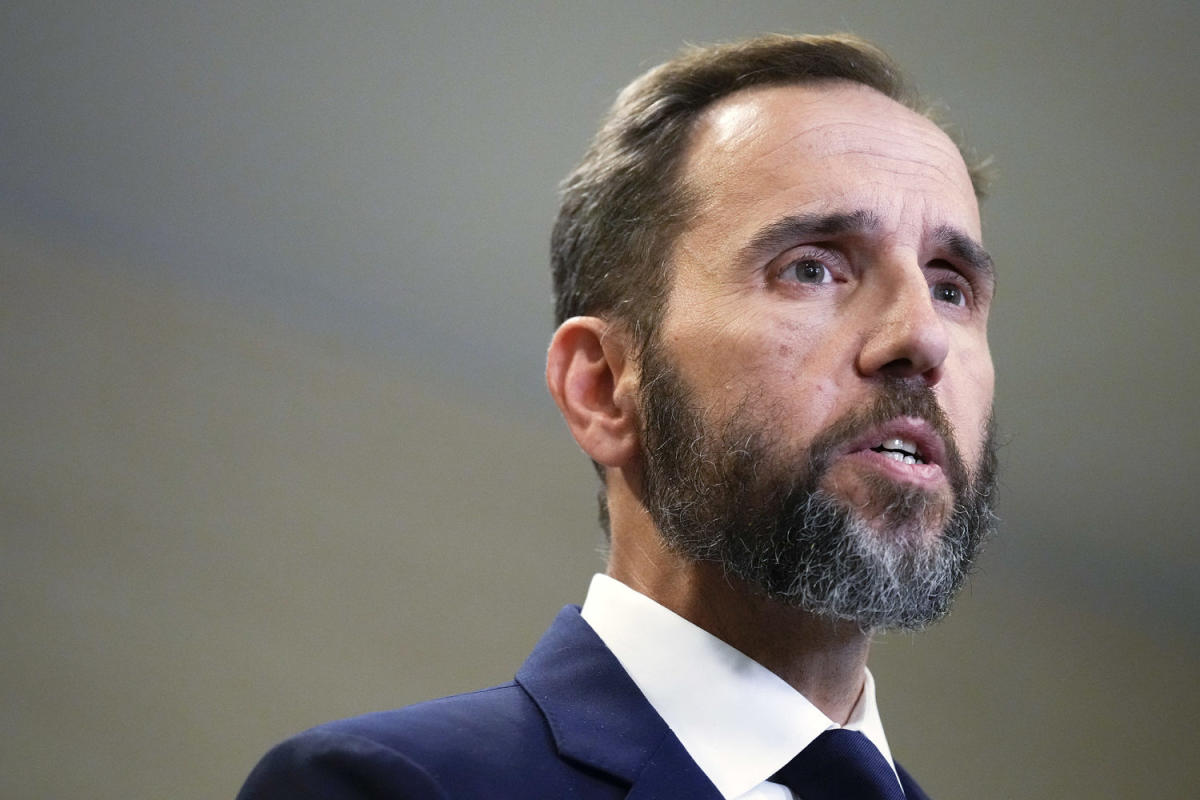Special counsel Jack Smith urged an appeals court on Saturday to reject former President Donald Trump’s efforts to dismiss his federal election interference case on presidential immunity grounds.
In a more-than-80-page filing with the U.S. Court of Appeals for the District of Columbia Circuit, Smith argued against Trump’s insistence that presidential immunity protects him from prosecution on federal charges that he conspired to overturn the 2020 presidential election.
“Separation-of-powers principles, constitutional text, history, and precedent all make clear that a former President may be prosecuted for criminal acts he committed while in office — including, most critically here, illegal acts to remain in power despite losing an election,” prosecutors wrote.
“Rather than vindicating our constitutional framework, the defendant’s sweeping immunity claim threatens to license Presidents to commit crimes to remain in office,” they added. “The Founders did not intend and would never have countenanced such a result.”
Smith filed his opposition in response to a brief to the D.C. Circuit from Trump’s lawyers Dec. 23 that said the Constitution and other immunity doctrines protected against the criminal prosecution of a current or former president for official acts “unless he is first impeached and convicted by the Senate.”
“Nor may a President face criminal prosecution based on conduct for which he was acquitted by the U.S. Senate,” Trump attorney D. John Sauer wrote in last week’s filing. “The indictment against President Trump is unlawful and unconstitutional. It must be dismissed.”
The special counsel addressed that argument and others in his filing Saturday, saying that although separation-of-powers doctrine provides the former president with protection from civil liability for official conduct, it does not give him immunity from criminal liability when charged with violations of federal criminal statutes.
“Any burdens of post-Presidency criminal liability have minimal impact on the functions of an incumbent and are outweighed by the paramount public interest in upholding the rule of law through federal prosecution,” prosecutors said. They added that the impeachment clause of the Constitution, which limits congressional remedies to removal and disqualification from office, “does not make a conviction at a Senate trial a condition precedent to criminal prosecution, which serves a function distinct from impeachment and removal.”
U.S. District Judge Tanya Chutkan, who is presiding over the federal election interference case, ruled this month that Trump’s presidential immunity claims do not shield him from the charges he faces.
Circuit Judges Karen Henderson, who was appointed by President George H.W. Bush, and J. Michelle Childs and Florence Pan, both Biden appointees, are expected to hear oral arguments at the appeals court on Jan. 9.
The court’s decision to hear Trump’s appeal threatens to push back the trial’s start date, currently scheduled for March 4. The Supreme Court previously refused Smith’s request to circumvent the normal appeals court process to rule quickly on the immunity claim.
Trump faces four counts of criminal conduct related to conspiring to overturn his presidential election loss to Joe Biden. He pleaded not guilty and has both publicly condemned the allegations and repeatedly pushed to delay various legal challenges against him until after next year’s election, arguing that earlier trial dates are tantamount to election interference.
Trump defended his actions in the aftermath of his 2020 election loss on Truth Social last Sunday, arguing he was entitled to immunity, though he did not mention the appeals court.
“I wasn’t campaigning, the Election was over. I was doing my duty as President to expose and further investigate a Rigged and Stolen Election,” he wrote.
This article was originally published on NBCNews.com








